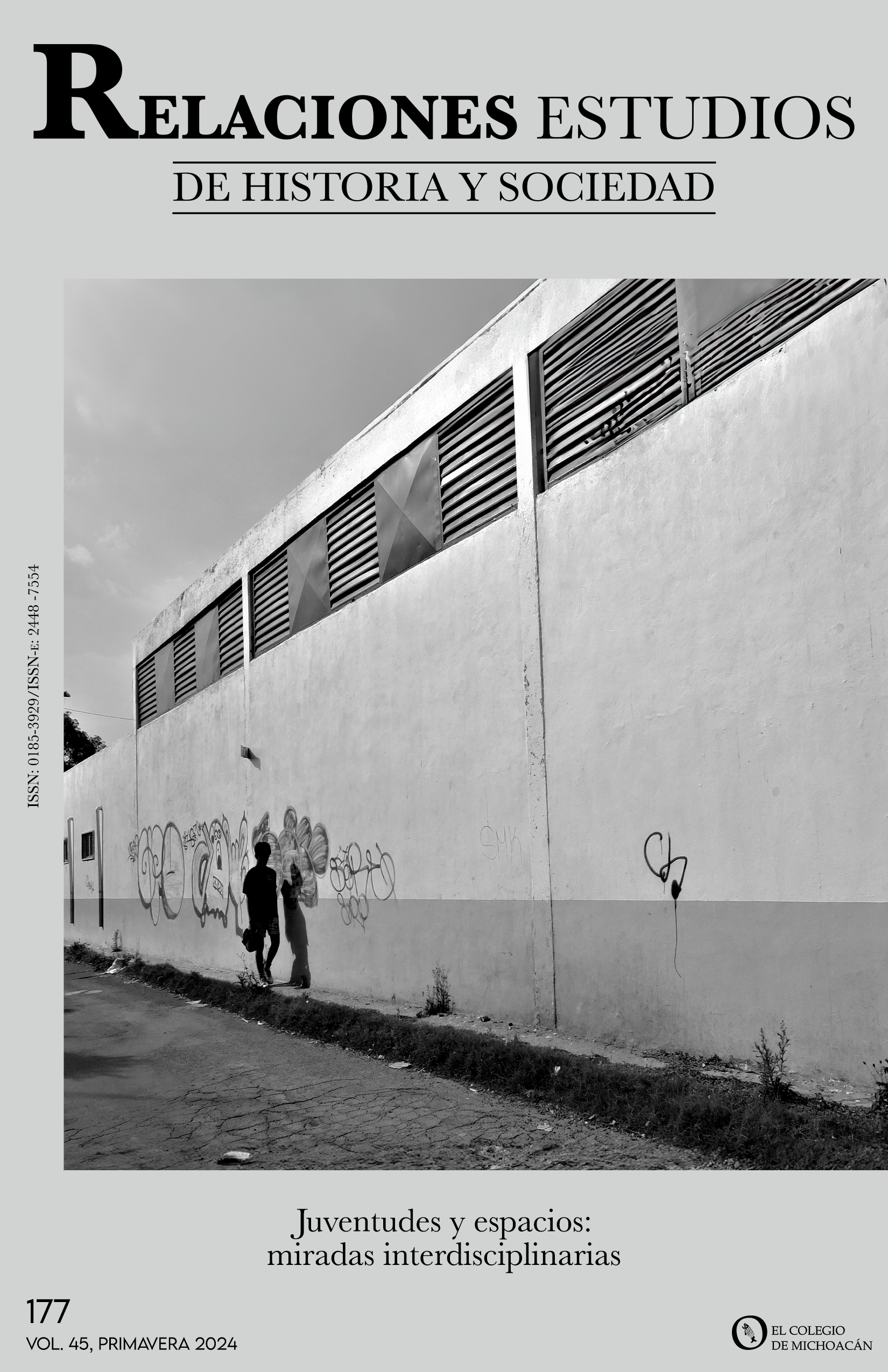Mexican Legal Provisions which eliminate Gender Violence in Education: Historical and Current Perspectives
DOI:
https://doi.org/10.24901/rehs.v45i177.1018Keywords:
Gender violence, Gender perspective, Inclusive Education, Educational legislation, Educational communityAbstract
Since the “derechohumanista” reform to the Political Constitution of the United Mexican States of 2011, rules and principles have been incorporated that enhance the obligation for all Mexican authorities (including educational authorities) to promote, respect, protect, and guarantee human rights. Therefore, rebuilding educational processes on issues of gender violence is urgent and mandatory. But what has been the evolution of the right to education in Mexican constitutionalism? Knowing this progress is enriching and clarifying to understand how it has become a fundamental right. Furthermore, addressing this problem is essential to raise awareness of the evolution of the constitutional systems of the 19th and 20th centuries, and this will allow us to contextualize the problems of gender violence that currently exist in socio-educational communities.
The objective of this article focuses on visualizing the historical and current perspectives that exist in the educational community on gender issues; with this, it will be possible to establish whether the Mexican legal provisions eliminating gender violence are complied with. As methodological validation, a survey instrument was applied to undergraduate students at the Autonomous University of Coahuila randomly. The results show the perspective of the students regarding the “relationship of gender violence in the educational community” and the “recognition of processes and products that eliminate gender violence”. The above allows us to conclude that, from the perspective of the students, constitutional bodies turn out to be (mandatory) tools in education that eliminate gender violence.
References
ABOITES, H. (2012). El derecho a la educación en México: del liberalismo decimonónico al neoliberalismo del siglo XXI. Revista mexicana de investigación educativa, 17(53), 361-389.
BARBA, J. (2019). Reconocimiento del derecho a la educación en las constituciones de México 1812 a 1917. Investigación y Ciencia de la Universidad Autónoma de Aguascalientes, 27(76), 60-69. https://revistas.uaa.mx/index.php/investycien/article/view/1802/1683
BLANCO, R. (2006). La Equidad y la Inclusión Social: Uno de los Desafíos de la Educación y la Escuela Hoy. Revista Iberoamericana sobre Calidad, Eficacia y Cambio en Educación, (4)3, 1-15. https://www.redalyc.org/pdf/551/55140302.pdf
CONSTITUCIÓN POLÍTICA DE LOS ESTADOS UNIDOS MEXICANOS (CPEUM). Art. 3, de 5 de febrero de 1917. Reforma publicada DOF 08-05-2023, de 8 de mayo de 2023. https://www.diputados.gob.mx/LeyesBiblio/pdf/CPEUM.pdf
DÍAZ, S. (2017). Laicidad. Concepto, origen y perspectiva histórica y contemporánea en México. Tirant lo Blanch.
DÍAZ, S. (2019). El principio de laicidad en el constitucionalismo mexicano.Religión y Derecho. Revista Jurídica de Buenos Aires, 44(98), 109-127. http://www.derecho.uba.ar/publicaciones/rev_juridica/rjba-2019-i.pdf
GONZÁLEZ, R. (2020). El impacto de la reforma constitucional de 2011 en la educación jurídica en México. Problemas y retos en la enseñanza de derechos humanos. En L. F. Ríos Vega e I. Spigno (Dirs.), Educación Jurídica y Derechos Humanos. La enseñanza del derecho en el siglo XXI (pp. 77-105). Tirant Lo Blanch.
MONZÓN, M. (2015). La educación y la formación en la Educación Normal. IE Revista de Investigación Educativa de la REDIECH, 6(10), 20-24.
MURAYAMA, C. (2014) Nota introductoria de la Reforma Constitucional sobre derechos humanos. Una guía conceptual. En P. Salazar (Coord.), Senado de la República. Instituto Belisario Domínguez (pp. 11-14). Instituto Belisario Domínguez.
RABASA, E. (1994). Historia de las Constituciones Mexicanas. UNAM
SÁNCHEZ, O. (2019). Gestión de la capacitación docente y su desempeño en el nivel secundaria del colegio nuestra señora del consuelo del distrito de surco 2017 [Tesis de Maestría]. Universidad Nacional Federico Villarreal. https://repositorio.unfv.edu.pe/handle/20.500.13084/3741
SUPREMA CORTE DE JUSTICIA DE LA NACIÓN (2021). Ley General De Educación Superior. Art. 43. Sistema de Consulta de Ordenamientos. https://legislacion.scjn.gob.mx/buscador/paginas/wfArticuladoFast.aspx?q=/HNedHfTnA2nOeiqjv6hyfqU22xAHwRYGfboj0kUoD2FwMapeSsjmHKc3Ul1OA5d8x80SDGEMW0/DdTE1L2JYg==
SOTO, A. (2013). El artículo 3º constitucional: un debate por el control de las conciencias en Cuestiones Constitucionales. Revista Mexicana de Derecho Constitucional, 28, 211-240.
ORGANIZACIÓN DE LAS NACIONES UNIDAS PARA LA EDUCACIÓN, LA CIENCIA Y LA CULTURA. (2021). La violencia escolar por razones de género. UNESCO. https://es.unesco.org/themes/acoso-violencia-escolar/violencia-escolar-razones-genero
Published
Issue
Section
License
Copyright (c) 2024 Gisela García Garza

This work is licensed under a Creative Commons Attribution-NonCommercial 4.0 International License.
Derecho de los autoresDe acuerdo con la legislación vigente de Derechos de Autor, la revista Relaciones Estudios de Historia y Sociedad reconoce y respeta el derecho moral de los autores, así como la titularidad del derecho patrimonial, el cual será transferido –de forma no exclusiva– a la revista para permitir su difusión legal en Acceso Abierto.
Los autores pueden realizar otros acuerdos contractuales independientes y adicionales para la distribución no exclusiva de la versión del artículo publicado (por ejemplo, incluirlo en un repositorio institucional o darlo a conocer en otros medios en papel o electrónicos), siempre que se indique clara y explícitamente que el trabajo se publicó por primera vez en la revista Relaciones Estudios de Historia y Sociedad.
Para todo lo anterior, los autores deben remitir la carta de transmisión de derechos patrimoniales de la primera publicación, debidamente requisitada y firmado. Este formato debe ser remitido en PDF a través de la plataforma OJS.
Derechos de los lectores
Bajo los principios de Acceso Abierto los lectores la revista tienen derecho a la libre lectura, impresión y distribución de los contenidos de la revista por cualquier medio, de manera inmediata a su publicación en línea. El único requisito para esto es que siempre se indique clara y explícitamente que el trabajo se publicó por primera vez en la revista Relaciones Estudios de Historia y Sociedad y se cite de manera correcta la fuente y el DOI correspondiente.















